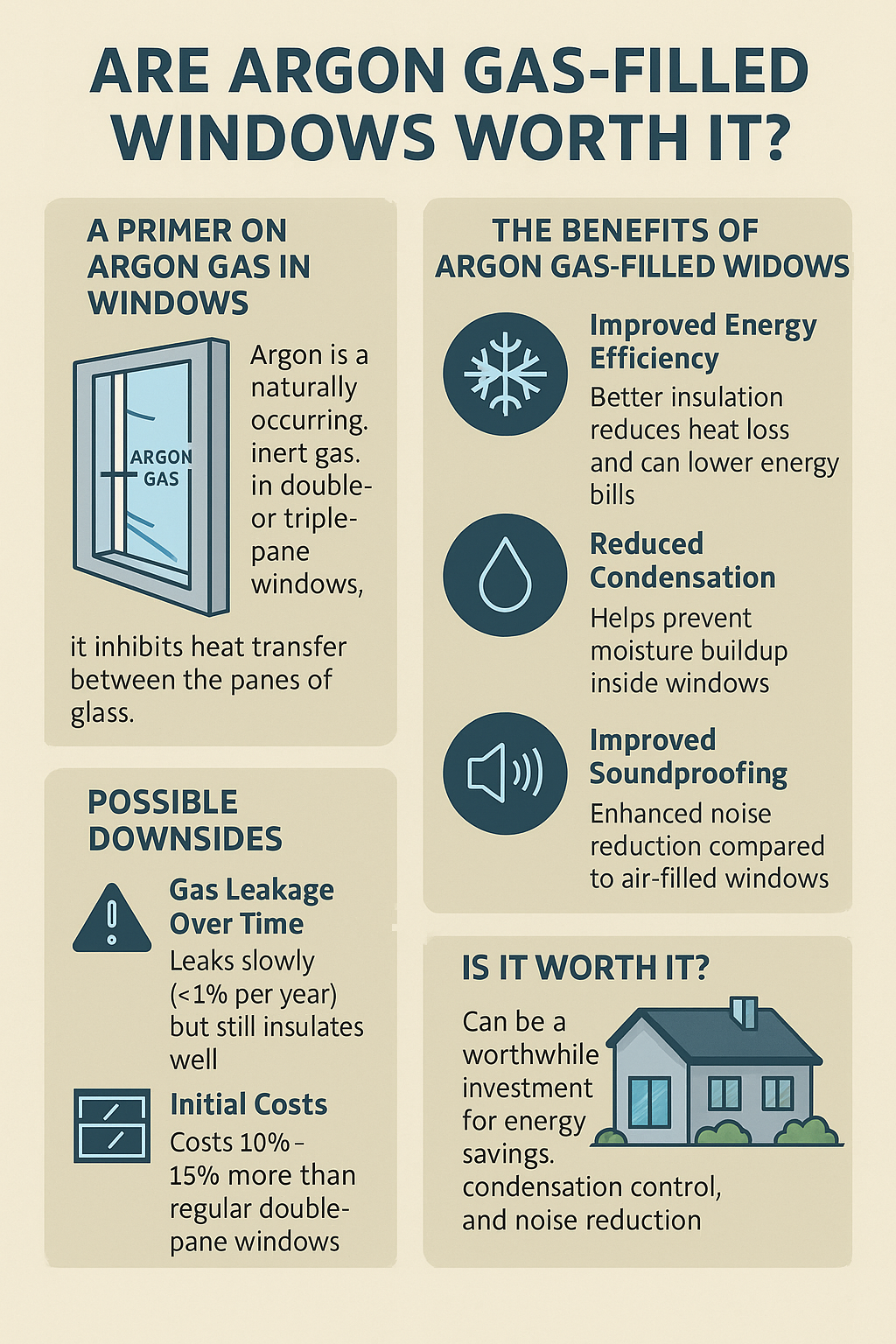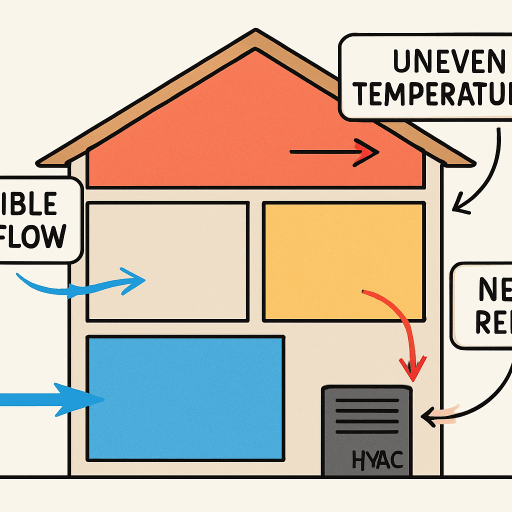For many homeowners, argon gas-filled windows might seem like a good solution to creating a more energy-efficient home and minimizing condensation, and noise for comfort, especially if you live where it becomes extremely hot, or extremely cold. Even if gas-filled windows seem appealing, the question is –are argon gas filled windows worth it? Are there benefits to installing argon windows? Now we will explore the hype and see if it translates to real-world advantages for homeowners in the residential space.
By understanding how argon-filled windows function, and the possible long term value, you can better prepare to specify new windows that will live up to the cost of an argon window versus of an air-filled window. The immediate cost of windows filled with argon gas may also be slightly more than traditional windows, but depending on the production characteristics of the products, fitted with argon gas windows, you may also see significant benefits of comfortable living, especially in extreme climates with extremely highs or low utilization costs on utilities.
Homeowners want technology that is sustainable, and also adds value or enhances comfort in our homes; however, not every technology is better for the environment. Learn about the product and what to be aware about to determine if the argon fill upgrade is worth it.
Below we will break down the Key Takeaways, before diving deeper into the Key Takeaways and considerations specific to argon filled insulated windows.For those new to the technology of windows, it may appear that the difference between air- and argon-filled windows is minimal; however, the total effect over several years can be much more substantial.
Table of Contents
A Primer On Argon Gas In Windows:
Argon is a naturally occurring, inert gas that is heavier than air and completely safe for indoor occupancy. In windows, argon is injected between the two or three panes of glass, displacing standard air within double- or triple-glazed windows. Argon is used in windows to inhibit heat transfer which enhances efficiency. It achieves this by inhibiting air movement and decreasing thermal conductivity. When used in insulated glass units (IGUs) argon serves as a more efficient barrier to outside temperatures and produces a more predictable indoor environment.
The Benefits of Argon Gas-Filled Windows:
Improved Energy Efficiency
The most straightforward benefit of argon gas when inserted into sealed window units is the decrease in energy loss or gain through windows, which is some of the most obvious spaces for energy transfer in homes. Argon is a less conductive gas than air and is significantly better at preventing heat transfer to and from the home. The US Department of Energy (USDOE) estimates replacement windows can save homes between $126 – $465 depending on factors such as climate and the type of window being replaced. Argon is one more added element to replacement windows that can help improve energy efficiency by limiting heat gain or loss.
Reduced Condensation
Condensation cannot only be an unsightly challenge but it can also cause mold and structural issues if it is not dealt with. Argon-filled windows help reduce condensation by better managing temperature over the surface of the glass compared to standard windows, which significantly reduces the likelihood of condensation or frost forming on the interior surface of your home. This has practical importance for colder climates where warm air inside the home meets cold winter air at the glass in your window.
Improved Soundproofing
One of the most considerable benefits of Argon is its better sound insulation. Argon gas has a density that helps it do a better job as a barrier to unwanted noise due to its higher density than regular air. Homeowners that live close to busy streets, train tracks, or airports will often notice the sound management quality of these units, improving comfort and general peace of mind inside the home.
Possible Downsides
Gas Leakage Over Time
No window is 100% sealed forever. Argon gas will escape from the sealed space between the panes, over time, although at a small percentage, as it is normal with use, age, wear, and tear, or by distorting the seals of a window. Research indicates it loses about 1% per year, and whether it affects the insulating properties of the windows during the window’s life, marginally. Overall, IGU windows are designed to ensure that when a window with Argon gas lost of gas due to no damage after decades, it still retains most of the insulating value of the gas.
Initial Costs
Argon gas windows are more expensive than double-pane standard windows. This is a function of the specialized manufacturing process, some consumer-grade quality, and quality control, adding about 10-15% markup on the windows’ cost. For a homeowner in a house for another decade, the higher upfront cost of Argon gas-filled windows was overall consistent with lower energy bills, improved comfort, and with the original plans to stay in a home long enough to see a decent return on the upfront costs. The New York Times’ Wirecutter has a transparent analysis of this: higher upfront costs for Argon and the improvements in energy and comfort.
Is It Worth It?
If you choose to upgrade to Argon windows, your choice should be made about how much upfront costs and continued savings you are willing to accept. Heating or cooling savings can be effective in regions with very hot or very cold climates, where the comfort level improvement is a difference you feel in your daily life. With new quality installation of window frames or double units, argon gas-filled windows do provide a best-of-class function with durable savings and cash back.
In Conclusion
Argon gas-filled windows are a top choice for anyone shopping for windows to maximize energy savings, condensation control, and an effective sound barrier to noise outside. There are some minor negatives with argon gas-filled windows, including gas leakage and a slightly higher than average price from standard windows. Generally, the benefits outweigh these negatives for anyone geared towards comfort and lasting value, committed to an efficient home. If this is a type of investment for energy savings or outcomes with sound control comfort is what you are looking to happen in your home consultation with your certified window installer or representative should help finalize if this type of investment is for the specific home improvement and enhancement of the goals of efficiency, comfort, and lasting impact.


